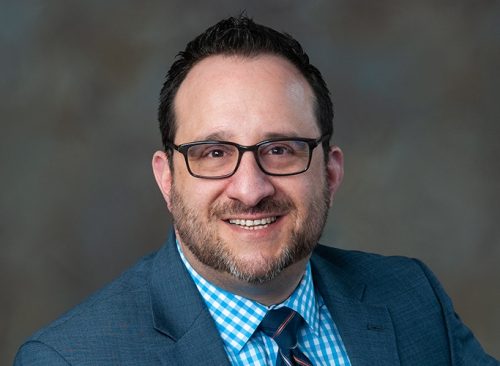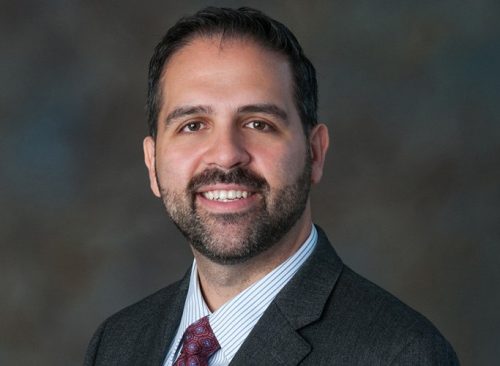“Estate planning” is the process of arranging your affairs to minimize aggravation and stress to your family at a time of need.
Typically, an “estate plan” will involve the creation of several legal documents to implement the plan.
One common document is a Last Will and Testament which applies after an individual passes away. In addition, most clients will also execute an Advance Directive for Health Care and a General Durable Power of Attorney to supplement the plan and insure that the assets or the decision-making process can be accessed at a critical point in time. Unlike a Last Will, these documents apply during life and terminate at death. In some estate planning, clients will consider the execution and possible funding of a Revocable or “Living” Trust to supplement the plan.
Our attorneys focus on the process of counseling clients on “estate planning” as well as implementing and monitoring the plans from the beginning until the end. It takes a client a lifetime to build their “estate” and as such, it is extremely important that they pay careful attention to the planning and work with experienced counsel. Kulzer & DiPadova has over 47 years of experience of servicing clients’ estate planning and administration, tax, and business needs to provide clients with the satisfaction that their affairs are structured in accordance with their wishes. We prepare a variety of estate planning and legal documents that are tailored to each client’s unique circumstances so that clients can be assured that their loved ones are cared for, their assets are distributed exactly as they wish, and their finances, health care decisions and estates are managed by people who understand their ideas and objectives.
We counsel clients on a variety of simple and complex issues that may impact whether their plan is successfully implemented and carried out. While many people think signing the Last Will is all they need to do, coordinating beneficiary designations and asset titling can be as important, if not more important in the planning process to ensure assets are distributed in accordance with clients’ wishes. When the possibility of transfer taxes being imposed on an estate represents a significant source of “aggravation” to clients and their heirs, it is extremely beneficial to have a skilled professional assist the clients address these issues during clients’ lifetimes to minimize the impact of such taxes. However, planning should also address important non-tax issues such as “asset protection” estate planning, long term testamentary planning, “special needs” planning, equalization of heirs’ inheritances, planning for blended families, and “business succession” planning. Business owners and executives face a host of other complex estate and asset protection planning issues so that they can manage and preserve their wealth, and sometimes transfer wealth, in the most prudent means both during life and upon death. The firm also counsels fiduciaries and represents beneficiaries of estates and trusts.
At a minimum, a basic estate plan is essential for every person. An estate plan allows clients to control their property while they are alive, provide a plan for themselves and their families in the event they become disabled or incapacitated, decide who is in control when they are no longer capable or want to do so, minimize the impact of costs and taxes, and distribute their assets to whomever they want, when they want. Ensuring clients have well drafted and up to date estate planning documents is crucial since ambiguous or out-of-date documents can lead to expensive litigation, disharmony among loved ones, or costly tax consequences.
An estate plan is comprised of four cornerstones: a Last Will and Testament and/or Trust, Beneficiary Designation, General Durable Power of Attorney, and Advanced Directive for Healthcare/Health Care Proxy.
Last Will and Testament
A “Last Will and Testament” is a legal document which expresses a Decedent’s last wishes. It is crucial to include terms for disposition of assets that would include not only tangible effects but also monetary assets and real estate. Secondly, a Last Will and Testament appoints certain individuals to act on behalf of the Decedent after death. These “fiduciaries” (i.e., people who act in great trust to the Decedent) include the “Personal Representative” or “Executor,” a Trustee of any trusts established and a guardian for any minor children (assuming the other parent is unable to serve).
Trusts
Trusts can provide a strong foundation for building on these fundamental estate planning documents. In a world of constantly changing tax laws, there are many situations where a tax attorney’s advice will play a key role in the estate plan. The most common transfer “tax” (e.g., taxes imposed on wealth transfers) are the federal estate and the New Jersey or Pennsylvania inheritance taxes. Sometimes, gifting strategies can require trusts that can create income tax issues that require coordination with the client’s other professionals. Kulzer & DiPadova, P.A. designs and implements tax-saving strategies for estates of all sizes.
Although there are many different types of trusts, generally, trusts can be divided into two categories: irrevocable trusts and revocable trusts.
Irrevocable Trusts
Irrevocable Trusts can take many forms and uses. Sometimes an irrevocable trust is created when an individual passes away and the trust terms are contained in the Last Will and Testament (these are called Testamentary Trusts). Other forms of Irrevocable Trusts can be made during life (these are called “Inter-vivos Trusts”). An Inter-vivos Irrevocable Trust is sometimes created as part of a gifting strategy but could also be used for many other purposes such as the incapacity or special needs of a trust beneficiary. With any trust, the legal document will differentiate between the individual that controls the assets (called the Trustee) and the individual or individuals who benefit from the trust funds (called beneficiaries).


Revocable or Living Trust
A Revocable or “Living” Trust is a popular estate planning document which is often used as a testamentary substitute. In other words, a Revocable Trust, as the name denotes, is revocable during the lifetime of the grantor but will become irrevocable upon that individual’s passing. There are various uses for a revocable trust in estate planning context. In some jurisdictions, a Revocable Living Trust is designed to minimize the state law system called “probate” but it also can be used for long term management of assets or to achieve privacy for family disposition terms.
Beneficiary Designations
Assets such as life insurance and retirement plan accounts pass according to the beneficiary designation which is filed with the life insurance company or custodian of the account. These assets are “non-probate” property which do not pass under the will or trust unless the estate or trust is designated as the beneficiary. The estate planning process requires a comprehensive review of all beneficiary designations so they are are current and in accordance with the overall estate plan.
General Durable Power of Attorney
A “General Durable Power of Attorney” is a legal document in which one individual (called Principal) appoints another individual (called Agent) to act on his or her behalf. When engaging in estate planning, it is common to name a trusted individual to protect your interests in the event you are unable. Usually, these documents are made to be “general” meaning that they cover all types of assets. Moreover, these documents, when used in an estate planning context are usually made to be “durable.” A “durable” Power of Attorney continues after the disability of the Principal. If a Power of Attorney is not “durable” it would not be effective when an individual is incapacitated and that is exactly when the use of a Power of Attorney would be most critical.
Advance Directive for Health Care/Health Care proxy
An “Advance Directive for Health Care” (often referred to as a “Living Will”) is a document where an individual expresses their wishes with regard to health care treatment. These have been popular since the New Jersey Supreme Court case involving Karen Quinlan. In that decision, the New Jersey Supreme Court found that an individual’s wishes should be respected as long as they are documented and memorialized. Subsequently, New Jersey and many other states, enacted legislation to support the use of an Advance Directive for Health Care as well as the ability to name a “health care representative” to articulate your desires should you be unable to do so.
Trusts
Trusts can provide a strong foundation for building on these fundamental estate planning documents. In a world of constantly changing tax laws, there are many situations where a tax attorney’s advice will play a key role in the estate plan. The most common transfer “tax” (e.g., taxes imposed on wealth transfers) are the federal estate and the New Jersey or Pennsylvania inheritance taxes. Sometimes, gifting strategies can require trusts that can create income tax issues that require coordination with the client’s other professionals. Kulzer & DiPadova, P.A. designs and implements tax-saving strategies for estates of all sizes.
Although there are many different types of trusts, generally, trusts can be divided into two categories: irrevocable trusts and revocable trusts.
Irrevocable Trusts
Irrevocable Trusts can take many forms and uses. Sometimes an irrevocable trust is created when an individual passes away and the trust terms are contained in the Last Will and Testament (these are called Testamentary Trusts). Other forms of Irrevocable Trusts can be made during life (these are called “Inter-vivos Trusts”). An Inter-vivos Irrevocable Trust is sometimes created as part of a gifting strategy but could also be used for many other purposes such as the incapacity or special needs of a trust beneficiary. With any trust, the legal document will differentiate between the individual that controls the assets (called the Trustee) and the individual or individuals who benefit from the trust funds (called beneficiaries).
Revocable or Living Trust
A Revocable or “Living” Trust is a popular estate planning document which is often used as a testamentary substitute. In other words, a Revocable Trust, as the name denotes, is revocable during the lifetime of the grantor but will become irrevocable upon that individual’s passing. There are various uses for a revocable trust in estate planning context. In some jurisdictions, a Revocable Living Trust is designed to minimize the state law system called “probate” but it also can be used for long term management of assets or to achieve privacy for family disposition terms.












